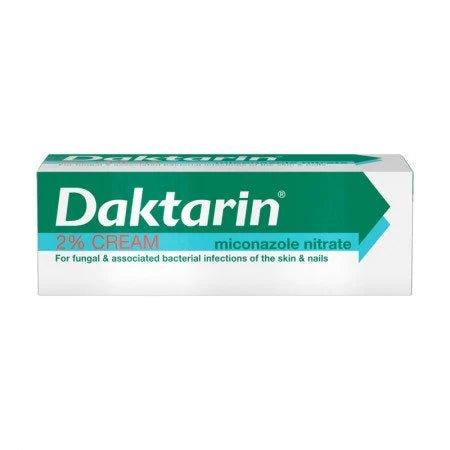
Daktarin 2% Cream
Antifungal Skin Treatment
Inhibiting Fungal Growth
Guarantees
- Same day dispatch.
- Discreet and confidential.
- Professional advice.
- Prompt support.
Couldn't load pickup availability
Pickup available at Rightangled HQ
Usually ready in 24 hoursPairs well with
Quick summary
Type of medicine
Topical Antifungal
Generic
Yes (Generic Available)
Active Ingredient
Miconazole Nitrate
Effective within
Varies by Condition
Works by
Inhibiting Fungal Growth
Side effects
Skin Irritation, Allergic Reactions
If you have any questions, you are always welcome to contact us. We'll get back to you as soon as possible, within 24 hours on weekdays.
Contact Us
Reach out to us with any questions or feedback. Our team is available via email at info@rightangled.com to ensure you get the support you need.
Shipping Information
Receive your orders quickly and reliably. Choose from multiple delivery options at checkout for convenience and speed. All orders placed before 3 pm are processed on the same day.
Customer Support
Our dedicated team is here to help you every step of the way. Contact us for assistance with orders, tests, or any other inquiries. We are available Monday to Friday between 8 am and 5 pm, and on Saturdays between 9 am and 1 pm.
FAQ’s
Find answers to commonly asked questions about our services, tests, and procedures. Our help centre proovides quick solutions and detailed information.
Medication details
Description
Daktarin Cream 15g is a widely recognized and trusted topical antifungal medication used to treat a variety of fungal skin infections. In this comprehensive guide, we will provide you with detailed information about Daktarin Cream, including its description, directions for use, ingredients, potential side effects, and important warnings.
Daktarin Cream contains the active ingredient miconazole nitrate, which is known for its antifungal properties. This makes it an effective choice for addressing fungal skin infections and providing relief from the associated discomfort and itching.
Directions
Ingredients
Side Effects
Warnings
Medically reviewed and published
This page was medically reviewed by Dr Sohaib Imtiaz, Clinical Lead on Oct 5, 2023, 2:45 pm
How it works
Start your online consultation and choose from a range of treatment options. Our in-house pharmacists will review your order and, if suitable, dispense your treatment. You'll receive your order within 1-3 working days.


FAQs
Please read our FAQs page to find out more.
